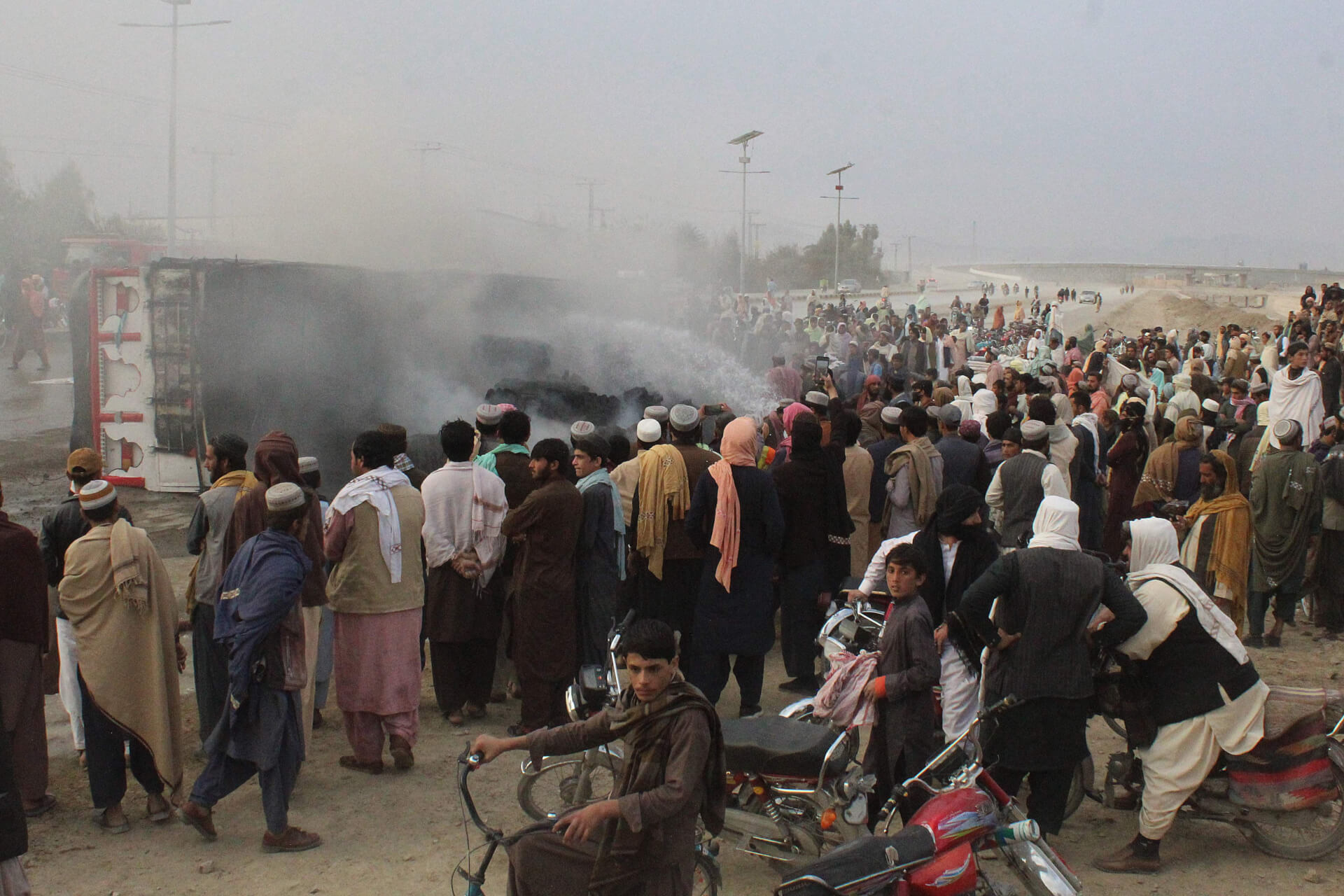Pakistani Defence Minister Khawaja Muhammad Asif on Monday announced the reopening of the country’s border with Afghanistan, a day after at least seven people were killed along the Chaman crossing.
He revealed that the Taliban has assured that such a security lapse will not happen again and recognised Pakistan as a “well-wisher.”
Asif added that while the government has set up a border security forces committee, it will not negotiate with Tehreek-e-Taliban Pakistan (TTP).
On Sunday, the Pakistani army reported that Afghan border forces had opened fire in a civilian area in Chaman, Balochistan, killing six Pakistani citizens and injuring 17 others. Asif said Pakistani troops retaliated and attacked the Afghan border check post.
Yesterday a tragic incident took place along the Boldak-Chaman crossing point leading to casualties on both sides. The repetition of such incidents is regrettable. The IEA on its part has taken serious preventative measures and also calls on the Pakistani government pic.twitter.com/Fdx0uqPfjV
— Abdul Qahar Balkhi (@QaharBalkhi) December 12, 2022
The spokesperson for the Kandahar government, Ataulla Zaid, said one Afghan soldier and three civilians were killed and 13 others were injured in the clash.
However, the exact number of injuries and fatalities remains unclear. A government-run hospital in Pakistan reported that 27 people were brought to the hospital and seven are in critical condition.
The exact reason for the clash also remains unknown.
Zaid claimed that Pakistani forces provoked their Afghan counterparts by setting up checkpoints on the Afghan side of the border.
In contrast, Chaman District Police Officer Abdullah Ali Kasi told Dawn that the cross-border firing began after the Afghan forces launched a mortar shell into Pakistani territory.
Meanwhile, sources quoted by AFP said that the two sides clashed after Afghan forces attempted to cut a border fence that Pakistan has been constructing since 2017.
Pakistani Prime Minister (PM) Shehbaz Sharif said the “unfortunate” incident “deserves the strongest condemnation” and demanded the Taliban ensure that such violence does not occur again.
Similarly, Interior Minister Rana Sanaullah said that the government is collecting details about the Chaman border clash, which he said was “extremely painful and saddening.”
🔊: PR NO. 5️⃣5️⃣8️⃣/2️⃣0️⃣2️⃣2️⃣
— Spokesperson 🇵🇰 MoFA (@ForeignOfficePk) December 11, 2022
Press Release
🔗⬇️https://t.co/cYfBVJ6jEW pic.twitter.com/ARu3lGw7k4
The Foreign Ministry condemned the “unprovoked and indiscriminate firing” on civilians. Foreign Office spokesperson Mumtaz Zahra Baloch said the attack was inconsistent with Afghan-Pakistani brotherly ties. She reiterated that both countries should protect civilians along their borders.
The Taliban Foreign Ministry, too, released a statement, assuring that it has taken “serious preventive measures.” At the same time, however, it urged the Pakistani government to “pay serious attention to preventing provocations.”
Balochistan Chief Minister Abdul Quddus Bizenjo expressed hope that the issue would be taken up with the Taliban regime at the diplomatic level to find an immediate and effective solution. In addition, Pakistan People’s Party co-chair Asif Ali Zardari said that the Taliban should not now mistake Islamabad’s “peaceful policy” for “a weakness.”
Unprovoked shelling & fire by Afghan Border Forces at Chaman resulting in martyrdom of several Pakistani citizens & injuring more than a dozen is unfortunate & deserves the strongest condemnation. The Afghan Interim government should ensure that such incidents are not repeated.
— Shehbaz Sharif (@CMShehbaz) December 12, 2022
Chaman is situated in southwestern Pakistan and is one of the busiest crossings for trade and pedestrian movement. The Chaman border crossing is also called the “Friendship Gate.”
In November, a similar deadly clash resulted in the border remaining shut for eight days. It caused shortages of tomatoes, onions, and other fresh produce in Balochistan, as trucks were abandoned and blocked from crossing to the other side.
Apart from these border issues, relations between Pakistan and the Taliban regime remain strained over security concerns. Just a few weeks ago, ISIS claimed responsibility for an attack on the Pakistani embassy in Kabul that PM Sharif referred to as an “assassination attempt” on Ambassador Ubaid-ur-Rehman Nizamani.
Islamabad has repeatedly urged the Taliban to take action against terror groups using Afghan soil to orchestrate attacks against Pakistan.
The 2,700-kilometre Durand Line is a cause for contention between the Pakistani Taliban and the Pakistani government. Taliban militants in the region reject the demarcation, as they believe that the border separates and carves the land of the Pashtun community, millions of whom live both in Afghanistan and Pakistan.
Pakistani Foreign Minister Bilawal Bhutto Zardari also met with the Organisation of Islamic Cooperation chief Hissein Brahim Taha on Monday and discussed Afghanistan’s humanitarian and security situation. He said that the international community must avoid repeating past mistakes and support Afghans in their fight against terrorism and ensure women’s rights and education.

